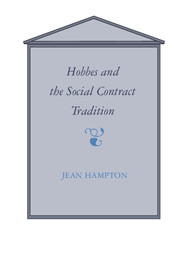Book contents
- Frontmatter
- Contents
- Acknowledgments
- A note on texts and references
- Introduction
- 1 “Of Man”: the foundation of Hobbes's political argument
- 2 What is the cause of conflict in the state of nature?
- 3 The shortsightedness account of conflict and the laws of nature
- 4 The argument for absolute sovereignty
- 5 Authorizing the sovereign
- 6 Hobbes's social contract
- 7 The failure of Hobbes's social contract argument
- 8 Can Hobbes's argument be salvaged?
- 9 How the traditional social contract argument works
- Bibliography
- Index
5 - Authorizing the sovereign
Published online by Cambridge University Press: 05 June 2012
- Frontmatter
- Contents
- Acknowledgments
- A note on texts and references
- Introduction
- 1 “Of Man”: the foundation of Hobbes's political argument
- 2 What is the cause of conflict in the state of nature?
- 3 The shortsightedness account of conflict and the laws of nature
- 4 The argument for absolute sovereignty
- 5 Authorizing the sovereign
- 6 Hobbes's social contract
- 7 The failure of Hobbes's social contract argument
- 8 Can Hobbes's argument be salvaged?
- 9 How the traditional social contract argument works
- Bibliography
- Index
Summary
Canst thou draw out leviathan with a hook? or his tongue with a cord which thou lettest down? Canst thou put a hook into his nose? or bore his jaw through with a thorn? Will he make many supplications unto thee? will he speak soft words unto thee? Will he make a covenant with thee? wilt thou take him for a servant forever?
Job, 41:1–4Supposing that the inhabitants of the state of nature accepted Hobbes's regress argument for the necessity of an absolute sovereign, their next move would be to determine how to go about instituting one. Hobbes says that two distinct actions are involved in the sovereign's institution: First, people must agree with one another to create a sovereign; second, each of them must keep her part of the agreement by “authorizing” the individual selected. In the next chapter we will be concerned with what this social contract is and how Hobbes can contend that it is possible for people to keep it. But in this chapter I want to focus on what the action of “authorizing” someone as sovereign is supposed to involve.
My purpose in this chapter is not simply to clarify Hobbes's rather hazy remarks on authorization. Depending on how we clarify these remarks, Hobbes can be interpreted as espousing either a master/slave relationship between a subject and a ruler or a more “Lockean” agent/principal relationship between them.
- Type
- Chapter
- Information
- Hobbes and the Social Contract Tradition , pp. 114 - 131Publisher: Cambridge University PressPrint publication year: 1987



